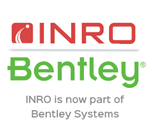Are our end-of-trip facilities ready for the future?
Eleanor Nightingale & Athol Moore
Accession Consulting & WSP Australia, Queensland
This presentation was delivered at the 2021 Online Conference Series and until October 2022 is only available to registered delegates and Content Access Pass holders via Interchange. For information on accessing this and other presentations please review the Content Access Pass options.
ABSTRACT
Employee end-of-trip facilities for active transport are now a standard requirement for development in most cities. Over the last ten or so years the bicycle parking provided has changed, improving efficient use of space and ease of use. But are the bicycle parking facilities typically used for employee parking ready for the rapidly evolving needs of users? Do they cater for commuter bicycles with panniers and mud guards, electric bicycles and scooters, cargo-bicycles and trailers? This paper reviews several examples of employee end of trip facilities and bicycle parking in Brisbane, provides a professional critique of the successes and challenges of the bicycle parking provided, and identifies how changes in bicycle design and technology needs to be considered in designing employee end-of-trip facilities.
Author(s)
Eleanor Nightingale | Accession Consulting
Eleanor Nightingale is the Director of Accession Consulting, a boutique transport planning consultancy based in Brisbane, offering services in transport strategy, planning and infrastructure delivery - primarily focused on active and public transport. Eleanor believes in fit-for-purpose infrastructure and services that shape and enable cities and regions.
Eleanor lives in the Sunshine State with her partner and two children and regularly enjoys riding them to school and exploring new cycle infrastructure in and around Brisbane with her family.
Athol Moore | WSP
Athol is a registered planner (RPIA) and engineer with WSP in Brisbane. Athol has over 24 years’ experience in multi-modal integrated transport and land use planning. He specialises in integrated transport network strategy and planning with a focus on supporting active and public transport as viable and attractive modes of transport to achieve sustainable and equitable development outcomes. Athol believes that as planners we need to question how our work to address current issues can support a sustainable and equitable future for communities.








